Derek Reed, Institutes for Behavior Resources, Inc.
Tom Critchfield, Illinois State University
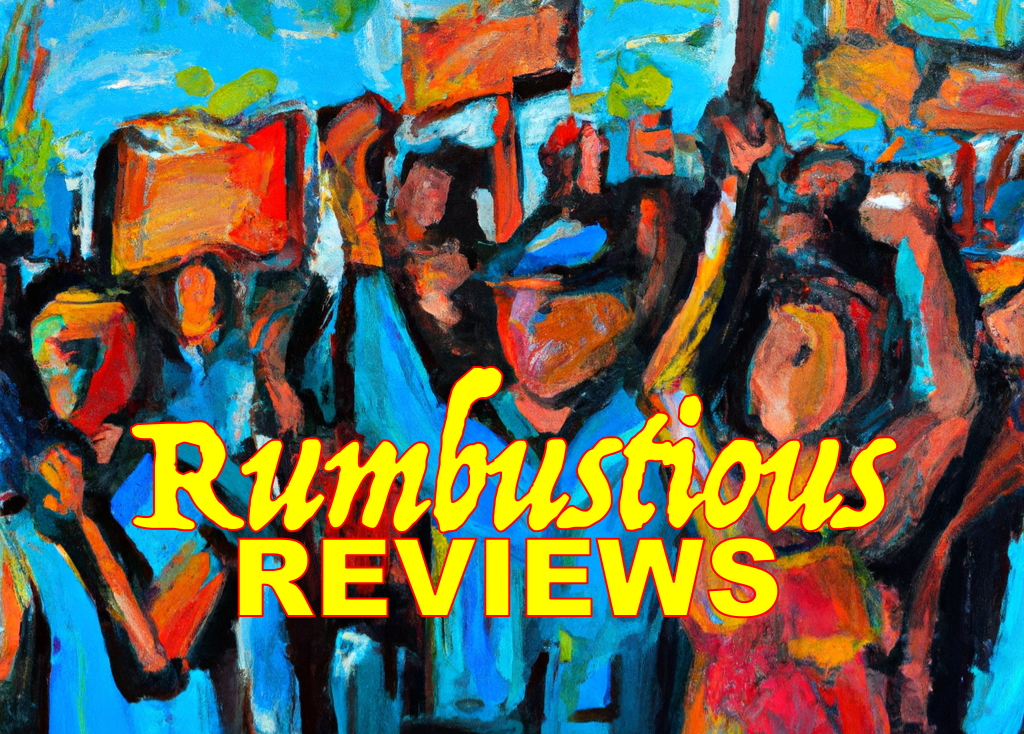
Rumbustious Reviews are conversational discussions about books that aren’t specific to behavior analysis. “Rumbustious” means “boisterous or unruly.” That might be a slight overstatement of purpose, but reading widely has a disruptive effect on our thinking, in a good way. LOTS of books can educate us on things about which we are (or should be) interested. Let’s encourage each other to read them. The approach of these reviews is to harness the tone of a decently elevated bar conversation: light on the stiff academic language and minus that drearily conservative expository style that journals demand of us.
Heward, B., & Gat, G.V. (1974). Some are called Clowns: A season with the last of the great barnstorming baseball teams. Crowell. Click here to download pdf for free!
Cole, J. (2022). Fans first: Change the game, break the rules, & create an unforgettable experience. Lioncrest.
Derek: Here’s Part 2 of our multi-part discussion about how two baseball books made us think about issues in behavior analysis. Last time we talked about Some Are Called Clowns, Bangin’ Bill Heward’s chronicle of his days playing for a barnstorming professional baseball team, the Indianapolis Clowns, back in the 1970s. Now we turn our attention to Fans first, which is inspired by a contemporary phenomenon in baseball, the Savannah Bananas.
Tom: Just like in our last installment, we need to emphasize an apparently unrelated background fact: These days professional conferences are run pretty much as they were 400+ years ago. Eventually we’re going to ask people to reflect on this.
Derek: Fans first is written by Jesse Cole who, with his wife Emily, founded the Savannah Bananas in 2016.
Tom: Compared to Some are Called Clowns, what’s new here?
Derek: In some ways, nothing. The Bananas, like the Clowns of old, are a barnstorming team who combine serious sportsmanship with sideshow energy. Some of their gimmicks include a player who competes on 10-foot stilts, a 76-year-old pitcher who’s surprisingly good, a between-innings granny beauty pageant, and banana-logo underwear giveaways. And of course there’s the ever-present owner, Jesse Cole, in his banana-hued tux.
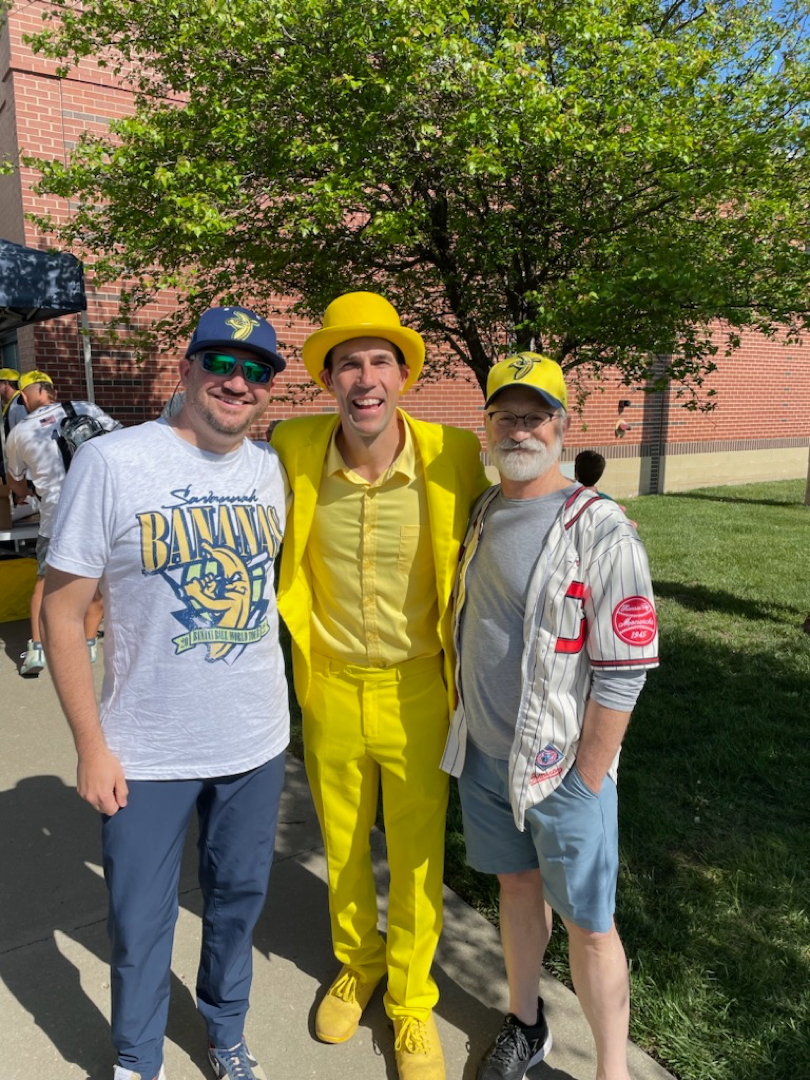
Tom: You and I got to see the Bananas play in Kansas City back in 2021. The antics are so numerous that it’s hard to cite everything.
Derek: So in part the Bananas address the problem of “baseball is boring” by amping up the stuff that is not normally part of baseball. In that way their operation is very similar to that of the Indianapolis Clowns.
Tom: It’s a classic application of the principle of conditioned reinforcement. Pair baseball with other reinforcers and maybe watching baseball becomes more reinforcing. But of course for that to happen you have to get people into the stadium to start with. People who aren’t big baseball fans initially may still come out for the sideshow stuff.
Derek: The sideshow stuff, in Clowns’ tradition, is for the fans, but the Bananas do a lot else that might be described as with or maybe about the fans. As Fans first argues, the idea is to build a relationship between the organization and individual fans, as often as possible. The sideshow is generic, and this is a much more intimate focus on what fans find reinforcing.
Tom: Jesse Cole says, “Nothing matters more than making people feel like they matter.”
Derek: Here’s a simple example of creating fan-focused moments. A long-standing baseball tradition is for players to sign baseballs or apparel for fans before and after games. The Bananas tradition is reversed: Before and after games players get kids to sign their hats and jerseys. Kids eat that up.
Tom: A more elaborate example: In 2023 the team officiated a wedding on the field in the middle of a game. Because a couple asked for that.
Derek: In general there’s a “corporate culture” which encourages each member of the organization to find opportunities to make connections, as in this story from Fans first about how one player finished up his night after a long game:
It was ten thirty at night, about an hour after one of the last games of the season ended. Everyone, even the maintenance crew, had gone home. A little girl stood alone with her father by the gate near first base. She wanted so badly to run the bases. Bill LeRoy noticed them as he was headed back to the clubhouse. He had just caught an entire game. He was tired, hungry, and sweating like crazy. Still, he saw the father and daughter and invited her onto the field and asked if he could run with her. Permission granted, he took her excited little hand, and they took off…. She ran [the bases] for a full half hour. And Bill ran with her.
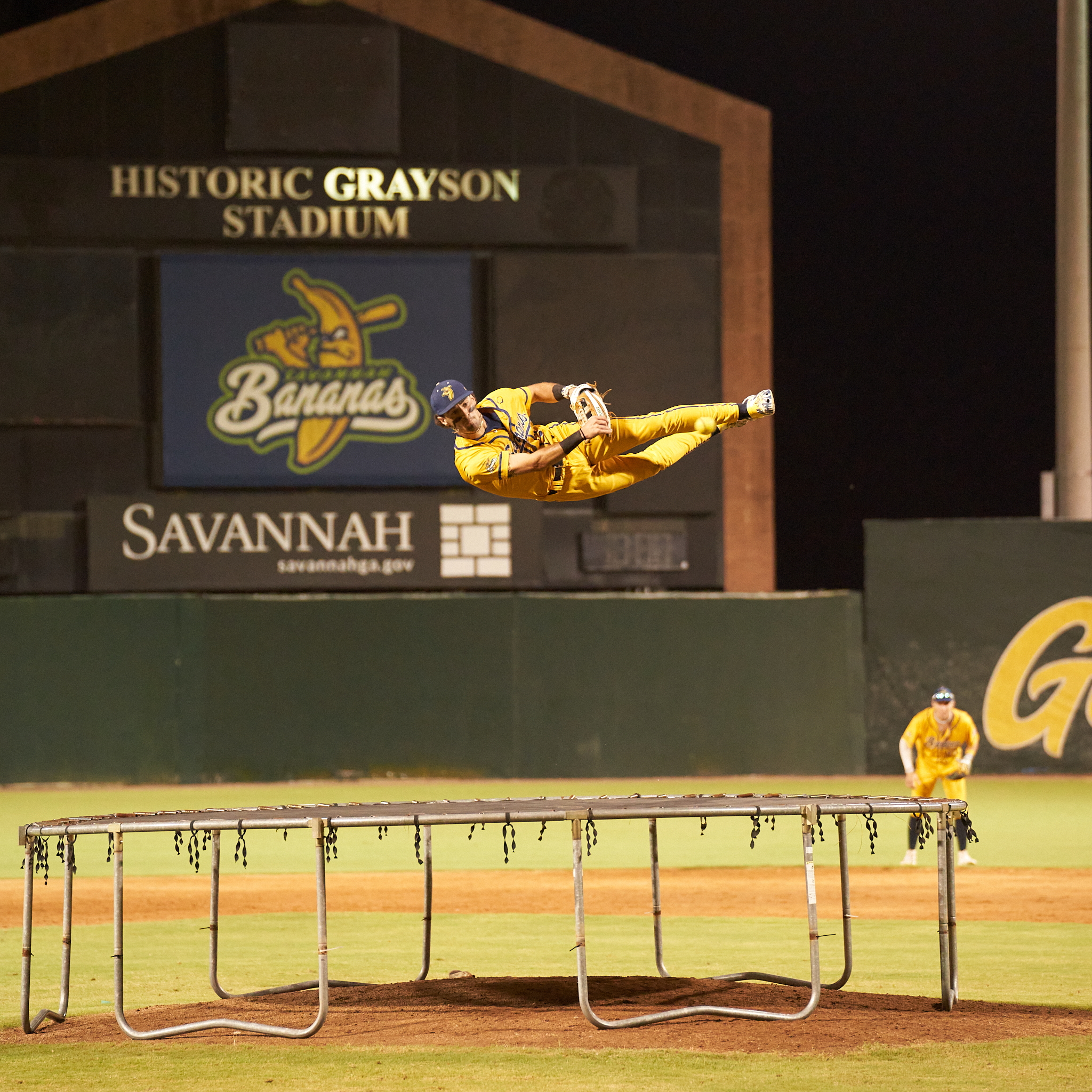
Tom: To foreshadow Part 3 of this review, imagine an official of ABAI doing something like that for a conference attendee (though to be honest I’m not sure what the parallel experience would be… running laps around the Expo after it has closed down for the night? 😂).
Derek: I very much want to see Maria Malott wearing a yellow tux.
Tom: Or ABAI hosting a wedding in the middle of a poster session.
Derek: Or authors at book signings chasing members around to sign their personal copies of the books they’re peddling.
Tom: When we ordered Bananas gear online ahead of the game we attended in ’21, we got personalized thank-you voice messages from the Bananas office. Think about what you get for re-upping your ABAI membership or registering for the annual conference: A digital receipt. Nothing that makes you feel personally valued.
Derek: To make this super literal, people come out to Bananas games even when it’s pouring rain. I wonder how many people would stand at a poster session if the convention hall sprinklers were showering them. It’s a question of passion for the organization and its mission. Getting people to minimally participate and making them feel ecstatic about being involved are different things.
Tom: We’re not just being touchy-feely here. Emotion fuels behavioral momentum, and every organization, every professional conference, would prefer to have your undying allegiance rather than just your grudging annual payment. To give you a concrete frame of reference, a behavior analysis organization we know is struggling with a tricky financial problem that might force it to shut down. I guarantee if that were the Savannah Bananas people would line up to make donations to keep the organization going.
Derek: The final thing we need to stress is that the Bananas have also moved beyond sideshow by essentially reinventing baseball to directly address some common complaints about it.
Tom: Like games being too long. In the Bananas’ version of the sport, called Banana Ball, there is a strict 2-hour limit on games. That shaves more than an hour off the average length of a 2021 game in Major League Baseball.
Derek: And, not to dive too deeply into baseball minutiae here, but Banana Ball also addresses specific game developments that people find boring — like the “walk” (or base on balls). That’s where, after receiving four lousy pitches, a batter gets a free pass to go to first base. Nothing exciting happens during the pitching part or in the batter’s leisurely trot to take his base. The game grinds to a temporary halt.
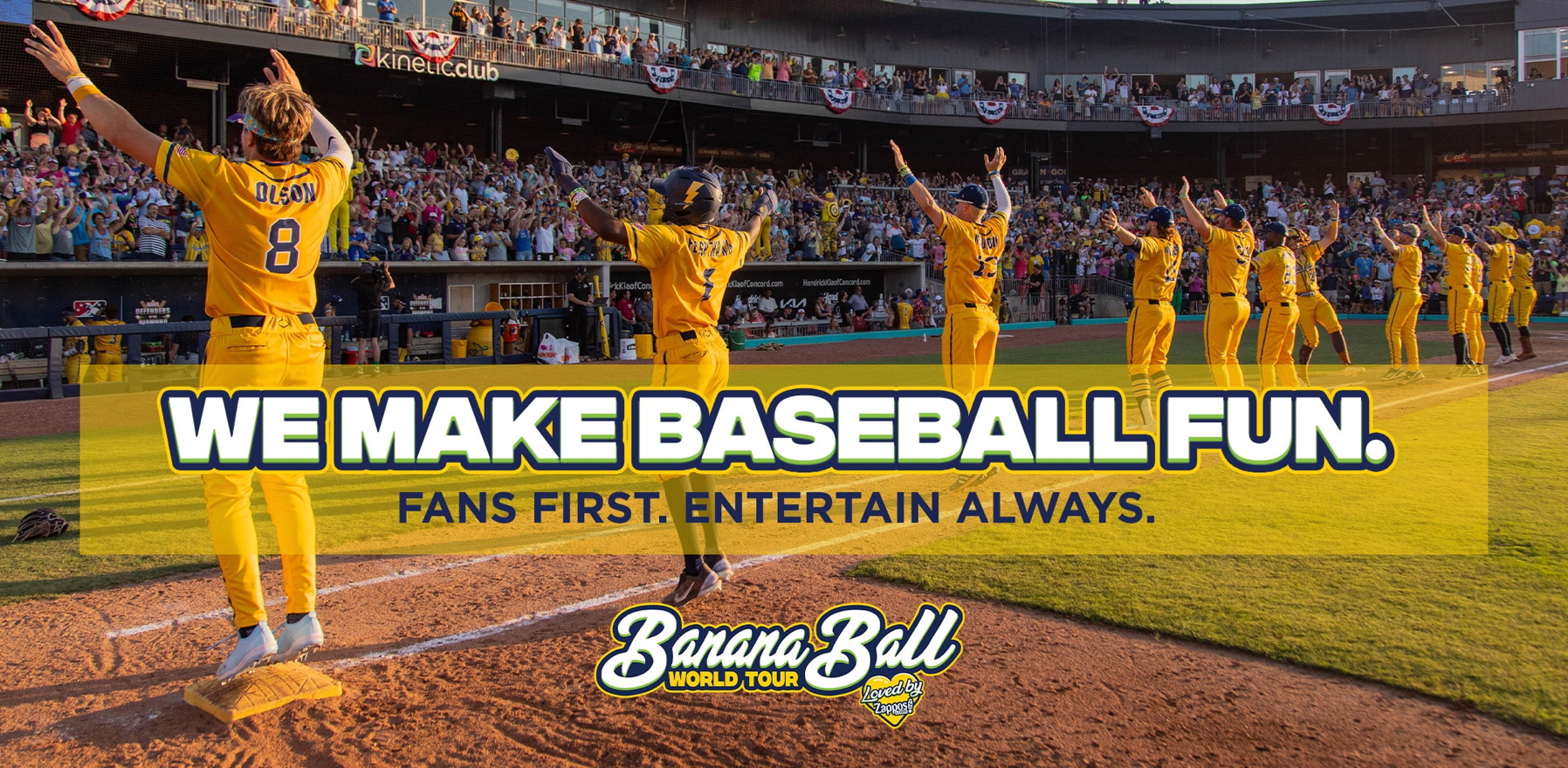
Tom: In Banana Ball, after the fourth poor pitch, the batter can run to as many bases as possible before the other team throws the ball around the field. That is, the batter can’t be tagged out until all nine defensive players touch the ball. You and I saw someone get all the way to third base this way. The whole thing is pretty crazy — that batter is sprinting his ass off and the baseball is flying all over the field. This mayhem demands skill and directly affects the game’s outcome. You can’t make bad pitching exciting, but what happens afterward in Banana Ball is exciting. Instead of grinding the game to a halt, a walk puts it temporarily on steroids.
Derek: That captures a critical point. When you strip away the gimmicks, Banana Ball is still baseball. Or a version of baseball that is more likely to appeal to people who aren’t yet fully committed baseball fans.
Tom: You and I, who ARE committed fans, found it pretty enjoyable too — once we let go of the concept of “tradition.”
Derek: Yeah, it was tempting to mutter, “That’s NOT how baseball is played!” But tradition for tradition’s sake is just… a habit. Want to know another habit? Running 17th Century professional conferences in the 21st Century.
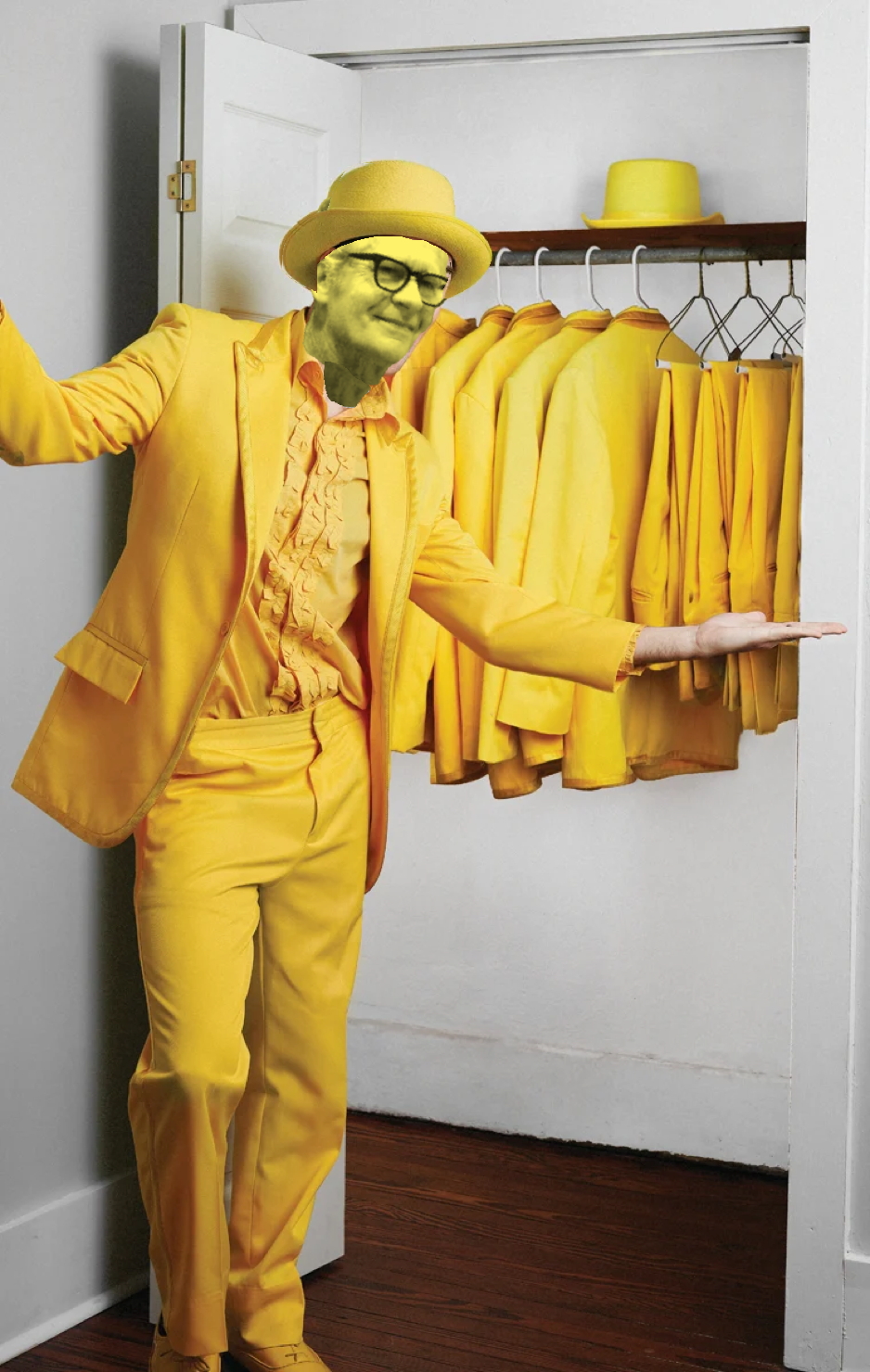
Tom: It’s funny. Baseball is often criticized as as a stiff old game that is stuck in the past, but its rules are constantly evolving (compare modern baseball to how the game was played in the 1800s). Baseball has changed more in 140 years than professional conferences have in about three times that long. Which brings us back to your concerns about conferences that we telegraphed back in Part 1.
Derek: The Bananas have sold out every single home game since they were founded in 2016. I think if conferences were organized with more of a Fans first attitude they would draw a lot more people.
Tom; Are you talking about updating the “serious” rules of conferences or amping up the sideshow energy?
Derek: Both. Maybe more of the former than the latter. But why think small when we’ve got all of Part 3 to play with? That’s where we’ll try to apply lessons from our two baseball books to the problem of running more enjoyable professional meetings.
Tom: OK, readers, you heard it here first: We’re reinventing the behavior analysis conference!
Welcome to BananABA International, coming in Part 3 of this review.
Postscript
More on the Savannah Bananas story:
